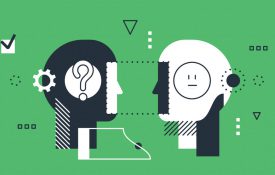-
Why Grandmothers May Hold The Key To Human Evolution
A hunter with bow and arrow, in a steamy sub-Saharan savanna, stalks a big, exotic animal. After killing and butchering it, he and his hunt-mates bring it back to their families and celebrate. This enduring scenario is probably what many of us have stuck in our heads about how early humans lived. It's an image with drama and danger. And it happens to coincide with Western ideas about the division of labor and the nuclear family that were prevalent in the 1960s when this so-called "Man the Hunter" theory first emerged. A newer body of research and theory, much of it created by women, has conjured a very different scenario.
-

Beyond the Reading Wars: How the Science of Reading Can Improve Literacy
A scientific report emphasizes the importance of teaching phonics in establishing fundamental reading skills in early childhood.
-
The Overprotected American Child
A few weeks ago I left my 9-year-old daughter home alone for the first time. It did not go as planned. That’s because I had no plan. My daughter was sick. My husband was out of town. And I needed to head to the drugstore—a five-minute walk away—to get some medicine for her. So I made sure my daughter knew where to find our rarely used landline phone, quizzed her on my cellphone number and instructed her not to open the front door for anyone. Then I left. Twenty minutes later I was back home. Both of us were a bit rattled by the experience—her first time completely alone, with no supervising adult!—but we were fine.
-
In the #MeToo Era, Raising Boys to Be Good Guys
Parenting, as I have come to understand it, is an endless series of life hacks. My wife and I have to think creatively to stay ahead of our two sons. I’ve hidden vitamins beneath pools of ketchup, made cough-syrup ice pops, learned the hard way that toothpaste will clean marker off wood furniture while hair spray will get it out of upholstery. But there are no shortcuts for the core mission of parenting: Raising a child to be a good person. The thought of either of my two sons harassing or assaulting another person, or being victims themselves, is enough to keep me up at night. Any parent is likely to share my worry.
-
Personality Tests with Deep-Sounding Questions Provide Shallow Answers about the “True” You
Have you ever clicked on a link like “What does your favorite animal say about you?” wondering what your love of hedgehogs reveals about your psyche? Or filled out a personality assessment to gain new understanding into whether you’re an introverted or extroverted “type”? People love turning to these kinds of personality quizzes and tests on the hunt for deep insights into themselves. People tend to believe they have a “true” and revealing self hidden somewhere deep within, so it’s natural that assessments claiming to unveil it will be appealing.
-

Negative Emotions Are Murkier, Less Distinct in Adolescence
Data from participants ranging from 5 to 25 years old suggest that adolescents don’t distinguish between negative emotions as clearly as younger children and adults in their 20s do.

